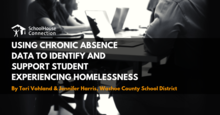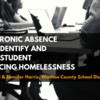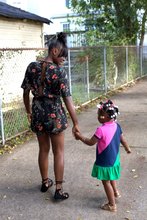0
Publication
Community:
Dec 1, 2018
Health care in the United States is long overdue for an upheaval. The mismatch between costs, by far the highest in the world, and health outcomes, among the worst in the high-income world, has long been glaring. Perhaps the good news is that the time for such an upheaval has come. At least 4 forces have been gathering steam, each promising to change the nature of health care and, in so doing, influence population health.
Authored by: Sandro Galea for Milbank Memorial Fund
Topics: Health, Partnerships, Research
 Shared by Mica O'Brien
Shared by Mica O'Brien
Mica O'Brien posted a
on Jan 24, 2019
Sandro Galea for Milbank Memorial Fund
Health care in the United States is long overdue for an upheaval. The mismatch between costs, by far the highest in the world, and health outcomes, among the worst in the high-income world, has long been glaring. Perhaps the good news is that the time for such an upheaval has come.
0
Publication
Community:
Jan 9, 2019
In this post, we hope to inspire others working in PreK-12 educational settings to examine rates of chronic absenteeism among the students they serve. We define chronic absenteeism and share three graphic displays of chronic absence data from our school district, the Washoe County School District located in Reno, NV.
Authored by: Tori Vohland and Jennifer Harris for Schoolhouse Connection
Topics: Attendance, Child welfare, Education, Homelessness, Housing, Partnerships, Youth
 Shared by Mica O'Brien
Shared by Mica O'Brien
Mica O'Brien posted a
on Jan 24, 2019
Tori Vohland and Jennifer Harris for Schoolhouse Connection
In this post, we hope to inspire others working in PreK-12 educational settings to examine rates of chronic absenteeism among the students they serve.
0
Publication
Community:
Jan 23, 2019
To explore the benefits and challenges of rapid re-housing support services, How Housing Matters asked a group of experts to weigh in. Contributing to the discussion are Kathryn Monet, chief executive officer at the National Coalition for Homeless Veterans, Jacob Donnelly, director of supportive services at Swords to Plowshares, and Samantha Batko, research associate at the Urban Institute.
Authored by: How Housing Matters for The Urban Institute
Topics: Asset building, Health, Homelessness, Housing, Low-income, Supportive housing, Workforce development
 Shared by Housing Is
Shared by Housing Is
Housing Is posted a
on Jan 24, 2019
How Housing Matters for The Urban Institute
To explore the benefits and challenges of rapid re-housing support services, How Housing Matters asked a group of experts to weigh in.
0
Publication
Community:
Jan 24, 2019
Affordable housing campaigns are not new, of course, but what is unprecedented and transformative about Opportunity Starts at Home is the scope and diversity of the partners that are joining forces to advocate for more robust and equitable federal housing policies. The campaign is advised by a Steering Committee including leading national organizations representing a wide range of interests that are working shoulder-to-shoulder to solve the affordable housing crisis.
Authored by: Opportunity Starts at Home
Topics: Asset building, Child welfare, CLPHA, Community development, Early childhood, Education, Food insecurity, Funding, Health, Homelessness, Housing, Immigrants, Legislation & Policy, Low-income, Mobility, Out-of-school time, Partnerships, Racial inequalities, Safety, Seniors, Stability, Substance abuse, Youth
 Shared by Mica O'Brien
Shared by Mica O'Brien
Mica O'Brien posted a
on Jan 24, 2019
Opportunity Starts at Home
Affordable housing campaigns are not new, of course, but what is unprecedented and transformative about Opportunity Starts at Home is the scope and diversity of the partners that are joining forces to advocate for more robust and equitable federal housing policies.
0
Publication
Community:
Jun 15, 2018
Delegates at the 2018 American Medical Association Annual Meeting in Chicago adopted several policies intended to alleviate chronic homelessness and racial housing segregation
Authored by: Sara Berg for the American Medical Association
Topics: Health, Homelessness, Low-income, Medicaid / Medicare, Partnerships
 Shared by Mica O'Brien
Shared by Mica O'Brien
Mica O'Brien posted a
on Jan 22, 2019
Sara Berg for the American Medical Association
Delegates at the 2018 American Medical Association Annual Meeting in Chicago adopted several policies intended to alleviate chronic homelessness and racial housing segregation
0
Policy Brief
Community:
Jan 18, 2019
This memo provides an overview of the impact of the shutdown on tenants in the various federally-assisted housing programs, including ways you can talk to clients about their legal rights. Importantly, there is currently only a relatively small group of tenants in HUD and RD project-based rental assistance properties that face an immediate risk due to contracts between owners and HUD or RD that expired starting in December.
Authored by: National Housing Law Project
Topics: Homelessness, Housing, Legislation & Policy, Research
 Shared by Mica O'Brien
Shared by Mica O'Brien
Mica O'Brien posted a
on Jan 22, 2019
National Housing Law Project
This memo provides an overview of the impact of the shutdown on tenants in the various federally-assisted housing programs, including ways you can talk to clients about their legal rights.
0
Publication
Community:
“Families are borrowing from already-limited food budgets to keep a roof over their heads”
Authored by: Opportunity Starts at Home
Topics: Food insecurity, Housing, Nutrition, Partnerships, Research
 Shared by Mica O'Brien
Shared by Mica O'Brien
Mica O'Brien posted a
on Jan 18, 2019
Opportunity Starts at Home
“Families are borrowing from already-limited food budgets to keep a roof over their heads”
0
Publication
Community:
Access To Affordable Housing Increases Stability For Vulnerable Households And Helps Avert Homelessness.
Authored by: Opportunity Starts at Home
Topics: Homelessness, Housing, Partnerships, Research
 Shared by Mica O'Brien
Shared by Mica O'Brien
Mica O'Brien posted a
on Jan 18, 2019
Opportunity Starts at Home
Access To Affordable Housing Increases Stability For Vulnerable Households And Helps Avert Homelessness.
0
Publication
Community:
Investments in affordable housing are a proven catalyst for economic growth, job creation, and development.
Authored by: Opportunity Starts at Home
Topics: Cost effectiveness, Housing, Partnerships, Research
 Shared by Mica O'Brien
Shared by Mica O'Brien
Mica O'Brien posted a
on Jan 18, 2019
Opportunity Starts at Home
Investments in affordable housing are a proven catalyst for economic growth, job creation, and development.
0
Publication
Community:
Safe, affordable housing enables low-income people to climb up the income ladder and achieve the American Dream.
Authored by: Opportunity Starts at Home
Topics: Asset building, Housing, Mobility, Partnerships, Research
 Shared by Mica O'Brien
Shared by Mica O'Brien
Mica O'Brien posted a
on Jan 18, 2019
Opportunity Starts at Home
Safe, affordable housing enables low-income people to climb up the income ladder and achieve the American Dream.
0
Publication
Community:
"Residential segregation is at the heart of racial inequality in the country. All of the disparities in the U.S. — in education, in income, wealth, employment, health — between the races are all fundamentally linked to residential segregation. There’s no real way to deal with disparities between black and white people without dealing with this."
Authored by: Opportunity Starts at Home
Topics: Housing, Low-income, Partnerships, Racial inequalities, Research
 Shared by Mica O'Brien
Shared by Mica O'Brien
Mica O'Brien posted a
on Jan 18, 2019
Opportunity Starts at Home
"Residential segregation is at the heart of racial inequality in the country. All of the disparities in the U.S. — in education, in income, wealth, employment, health — between the races are all fundamentally linked to residential segregation.
0
Publication
Community:
Individuals transitioning out of the criminal justice system need a good place to call home so that they can reconnect with society and rebuild their lives.
Authored by: Opportunity Starts at Home
Topics: Criminal justice, Homelessness, Housing, Partnerships, Research
 Shared by Mica O'Brien
Shared by Mica O'Brien
Mica O'Brien posted a
on Jan 18, 2019
Opportunity Starts at Home
Individuals transitioning out of the criminal justice system need a good place to call home so that they can reconnect with society and rebuild their lives.
0
Publication
Community:
Quality affordable housing can be a “vaccine” which prevents long-term health problems and promotes healthy, productive lives. When a family’s housing situation is unaffordable and unstable, chances to lead a healthy life dwindle rapidly.
Authored by: Opportunity Starts at Home
Topics: Child welfare, Health, Homelessness, Housing, Low-income, Partnerships, Seniors, Stability
 Shared by Mica O'Brien
Shared by Mica O'Brien
Mica O'Brien posted a
on Jan 18, 2019
Opportunity Starts at Home
Quality affordable housing can be a “vaccine” which prevents long-term health problems and promotes healthy, productive lives. When a family’s housing situation is unaffordable and unstable, chances to lead a healthy life dwindle rapidly.
0
Publication
Community:
Teachers know that children learn better and are more likely to graduate when they live in a stable, affordable home.
Authored by: Opportunity Starts at Home
Topics: Child welfare, Early childhood, Education, Housing, Partnerships, Youth
 Shared by Mica O'Brien
Shared by Mica O'Brien
Mica O'Brien posted a
on Jan 18, 2019
Opportunity Starts at Home
Teachers know that children learn better and are more likely to graduate when they live in a stable, affordable home.
0
Publication
Community:
Jan 1, 2019
According to the Institute for Women’s Policy Research, 26% of undergraduate students--about 4.8 million students--are raising dependent children. Students of color are more likely to be parents; additionally, about 70% of parenting students are women. These students are balancing many competing demands: attending classes, keeping up with schoolwork, and caring for children. College and child care are costly, with the average cost of child care ranging between $8,000-$35,000 each year. As a result, parenting students are more likely to experience food and housing insecurity than students who do not have children.
Authored by: SchoolHouse Connection
Topics: Dual-generation, Early childhood, Education, Housing, Partnerships, Post-secondary, Youth
 Shared by Mica O'Brien
Shared by Mica O'Brien
Mica O'Brien posted a
on Jan 16, 2019
According to the Institute for Women’s Policy Research, 26% of undergraduate students--about 4.8 million students--are raising dependent children. Students of color are more likely to be parents; additionally, about 70% of parenting students are women.
0
Publication
Community:
Jan 1, 2019
Postsecondary attainment is increasingly necessary to move out of poverty and homelessness and live a healthy, productive life. Yet youth experiencing homelessness face barriers in transitioning from secondary to postsecondary education, as well as barriers to financial aid, college retention, and college completion. This fact sheet summarizes existing data and information on the higher education experiences of homeless youth.
Authored by: SchoolHouse Connection
Topics: Education, Food insecurity, Homelessness, Housing, Post-secondary, Research, Youth
 Shared by Mica O'Brien
Shared by Mica O'Brien
Mica O'Brien posted a
on Jan 16, 2019
Postsecondary attainment is increasingly necessary to move out of poverty and homelessness and live a healthy, productive life.
0
Publication
Community:
Oct 9, 2018
Women with children, especially, stay hidden in fear of losing custody of their children. As a result, we will never see them camping in tents or in downtown parks.
Authored by: Mary Ellen Mitchell for SchoolHouse Connection
Topics: Early childhood, Homelessness, Housing, Legislation & Policy, Low-income, Safety, Stability
 Shared by Mica O'Brien
Shared by Mica O'Brien
Mica O'Brien posted a
on Jan 11, 2019
Mary Ellen Mitchell for SchoolHouse Connection
Women with children, especially, stay hidden in fear of losing custody of their children. As a result, we will never see them camping in tents or in downtown parks.
0
Publication
Community:
Jan 11, 2019
This short article expands on the press release issued last month by six national organizations. It explains why HUD’s data are so contentious, and why other data sources provide a more accurate picture of children, youth, and family homelessness.
Authored by: SchoolHouse Connection
Topics: Homelessness, Housing, Metrics, Research, Youth
 Shared by Mica O'Brien
Shared by Mica O'Brien
Mica O'Brien posted a
on Jan 11, 2019
This short article expands on the press release issued last month by six national organizations. It explains why HUD’s data are so contentious, and why other data sources provide a more accurate picture of children, youth, and family homelessness.
0
Publication
Community:
Dec 1, 2018
A guide for youths who are or were homeless, or are at risk of experiencing homelessness
Authored by: U.S. Department of Education
Topics: Education, Homelessness, Housing, Low-income, Post-secondary
 Shared by Mica O'Brien
Shared by Mica O'Brien
Mica O'Brien posted a
on Jan 8, 2019
U.S. Department of Education
A guide for youths who are or were homeless, or are at risk of experiencing homelessness
0
Publication
Community:
Jan 2, 2019
Housing quality, instability, and unaffordability threaten the well-being of millions of children across the nation. Research shows that housing is the first rung on the ladder to economic opportunity and that a person’s access to opportunity is intrinsically linked with that of the community where they live. As home prices increase, the gap between rents and incomes continues to widen, and nearly half of today’s renters are cost burdened. Child welfare professionals, educators, and pediatricians can strengthen their work by understanding the central importance of housing as a determinant of wide-ranging outcomes for the country’s youngest generation.
Authored by: Veronica Gaitan for How Housing Matters
Topics: Child welfare, Early childhood, Health, Housing, Research, Safety
 Shared by Mica O'Brien
Shared by Mica O'Brien
Mica O'Brien posted a
on Jan 7, 2019
Veronica Gaitan for How Housing Matters
Housing quality, instability, and unaffordability threaten the well-being of millions of children across the nation.
0
Publication
Community:
Feb 8, 2018
Homeownership often translates to wealth accumulation, and wealth grows generationally. As a result, the wealth gap between white and black families has grown over the past 50 years. In 2016, white wealth was seven times greater than black wealth. Even if black families own homes, home equity does not necessarily provide the same savings and wealth-building opportunity as it does for white families.
Authored by: Janae Ladet for How Housing Matters
Topics: Housing, Legislation & Policy, Racial inequalities, Research
 Shared by Mica O'Brien
Shared by Mica O'Brien
Mica O'Brien posted a
on Jan 7, 2019
Janae Ladet for How Housing Matters
Homeownership often translates to wealth accumulation, and wealth grows generationally. As a result, the wealth gap between white and black families has grown over the past 50 years. In 2016, white wealth was seven times greater than black wealth.
0
Publication
Community:
Aug 22, 2018
Because many children attend elementary schools in their own neighborhood, a child’s access to high-quality schools is dependent on where they grow up. Racial residential and school segregation, along with policies and practices that inequitably distribute resources across neighborhoods and schools, have created a system in which students of color often lack access to high-quality schools compared with white students residing in the same region.
Authored by: Ruth Gourevitch for How Housing Matters
Topics: Child welfare, Education, Low-income, Racial inequalities, Research, Youth
 Shared by Mica O'Brien
Shared by Mica O'Brien
Mica O'Brien posted a
on Jan 7, 2019
Ruth Gourevitch for How Housing Matters
Because many children attend elementary schools in their own neighborhood, a child’s access to high-quality schools is dependent on where they grow up.
0
Publication
Community:
Apr 10, 2018
State and local governments are debating and adopting new landlord-tenant laws and pilot programs, such as expanded legal representation and just-cause eviction requirements. Yet, few housing experts understand evictions well enough to channel the demand for change into clarity about specific eviction problems and potential solutions. Now is the time for policymakers and advocates to get smart. Here are five strategies for policymakers to consider as they address America’s eviction crisis.
Authored by: Maya Brennan for Urban Institute
Topics: Housing, Legislation & Policy, Low-income, Research, Stability
 Shared by Mica O'Brien
Shared by Mica O'Brien
Mica O'Brien posted a
on Dec 21, 2018
Maya Brennan for Urban Institute
State and local governments are debating and adopting new landlord-tenant laws and pilot programs, such as expanded legal representation and just-cause eviction requirements.
0
Publication
Community:
Oct 1, 2016
This report examines strategies used by local governments to address rising housing costs and displacement of low-income households in gentrifying neighborhoods. To assist tenants at risk of displacement, the report details strategies to regulate the landlord/tenant relationship well as strategies to provide assistance for households that move. To create and preserve affordable housing, the report explores ways to use city-owned land and other resources strategically to promote affordable housing in areas where costs are on the rise. It also examines ways to harness the market, such as inclusionary zoning and linkage fees. The report is part of an ongoing series of work by the NYU Furman Center on gentrification, but is the first to provide an overview of policy responses to the effects rapidly rising rents.
Authored by: Jessica Yager, Luke Herrine, and Nadia Mian for NYU Furman Center
Topics: Community development, Housing, Low-income, Stability
 Shared by Mica O'Brien
Shared by Mica O'Brien
Mica O'Brien posted a
on Dec 21, 2018
Jessica Yager, Luke Herrine, and Nadia Mian for NYU Furman Center
This report examines strategies used by local governments to address rising housing costs and displacement of low-income households in gentrifying neighborhoods.
0
Publication
Community:
Dec 1, 2018
New York City’s UAC has generated substantial interest as other jurisdictions across the U.S. consider or implement similar programs. In June 2018, San Francisco voters approved a ballot initiative requiring the city to establish, fund, and run a program to provide legal representation to all tenants facing eviction regardless of income. The Los Angeles City Council approved a motion in August 2018 instructing the housing department to develop recommendations for a new eviction defense bill or program.
Authored by: Vicki Been, Deborah Rand, Nicole Summers, and Jessica Yager for NYU Furman Center
Topics: Housing, Legislation & Policy, Low-income, Stability
 Shared by Mica O'Brien
Shared by Mica O'Brien
Mica O'Brien posted a
on Dec 21, 2018
Vicki Been, Deborah Rand, Nicole Summers, and Jessica Yager for NYU Furman Center
New York City’s UAC has generated substantial interest as other jurisdictions across the U.S. consider or implement similar programs.


 Shared by Housing Is
on Jan 24, 2019
Shared by Housing Is
on Jan 24, 2019







